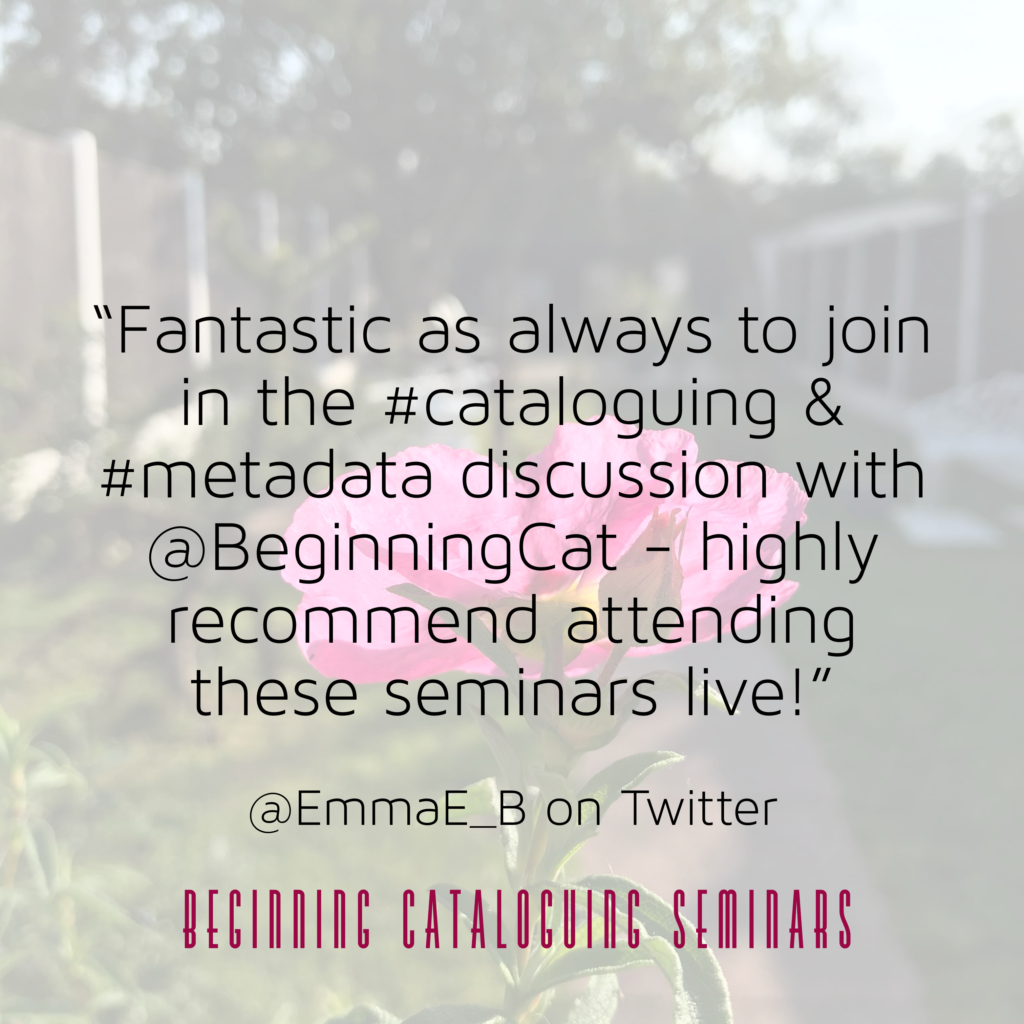
There are still a few days to sign up for the recording of last month’s seminar on Cataloguing Matters.
As is always the way, the best of the discussion happened after the introductory presentation, and it was great to hear from participants what is happening in their corner of the cataloguing and metadata world. The Chatham House Rule applies, and the recording captures only my initial presentation.
In it I talked a little about how cataloguing has changed over the years, beginning with the card catalogue days in which I began my professional career, and examining the core principles by which we still work. Perhaps controversially, I presented a view that while work to add large sets of metadata to catalogues and discovery engines is vital and important, there is still a need for cataloguing at the individual level. There are some materials whose metadata is simply going to be wanted by so few libraries that I believe they will never be cost effective for data suppliers to prioritise other than as a specific project for a specific client. (Note: data and metadata suppliers do undertake such work, and usually with the added benefit that fresh records are added to their wider pool).
We had a look in some detail at Calhoun’s significant report, The Changing Nature of the Catalog and Its Integration with Other Discovery Tools (Library of Congress, 2006), and thought about contexts in which its very true observations about national and academic libraries simply cease to pertain in some other organisations. I highlighted Jewett’s original calculation, that creating a stereotyped catalogue of shared records would still leave around a third of the materials needing to be catalogued by individual libraries – or, at least, by his individual library, the Smithsonian, on which he was basing his calculations (p. x).
We also talked a little about the National Acquisition Group’s report on the Quality of Shelf-ready Metadata (NAG, 2020), and discussed how in it we can see academic libraries following the same cycle we have seen in public libraries over the last 10-15 years.
The news from the public library sector is quite bright, though. As well as the Bridgend Library cataloguing project, about which we’ll hear more on Wednesday, when Harriet Hopkins (Awen Cultural Trust) and Amy Staniforth (CILIP Cymru Wales) are discussing Training Matters with us, there are several library authorities who are in the process of commissioning bespoke training for their staff. Local Studies collections are often the repository of exactly the kind of semi-published and privately printed materials that it can be difficult to locate and download from databases of shared cataloguing. Such materials can often seem more complex to non-cataloguers than many of the standard books for which it’s easy to download a perfect dataset.
I’ll be picking up this refrain in a little more detail in the article I’ve been commissioned to write for the next issue of Catalogue and Index, which, like all their issues, will be available open access. It will also contain a piece by Emma Booth on why Metadata Matters, as well as other articles on advocacy for our area of the information professions. I’ll pop a link to the new issue here, and, of course, in the newsletter when the Catalogue and Index editors let us know it is out.
In the meantime, I hope to see some of you at our seminar with Harriet and Amy on Wednesday.